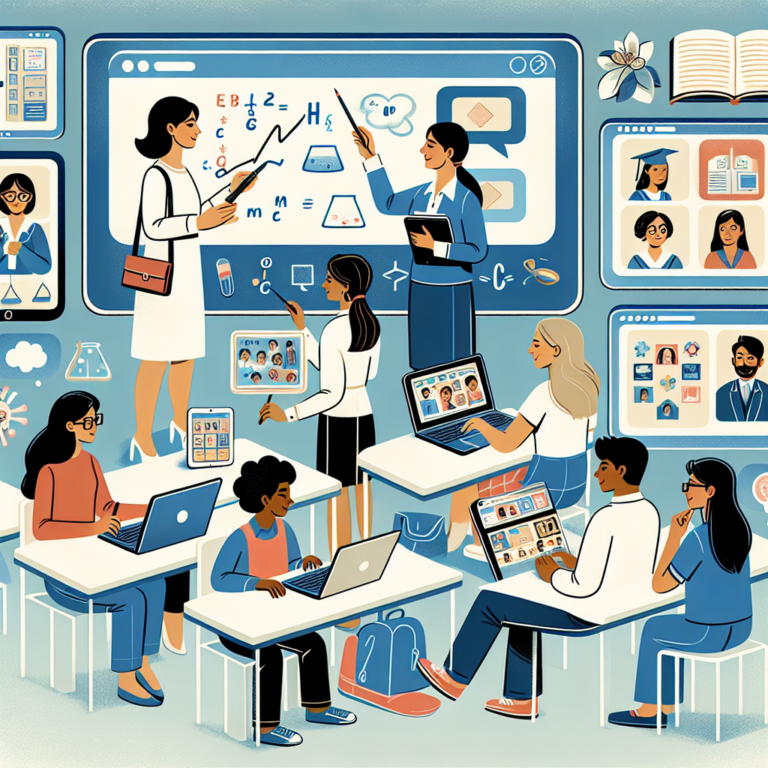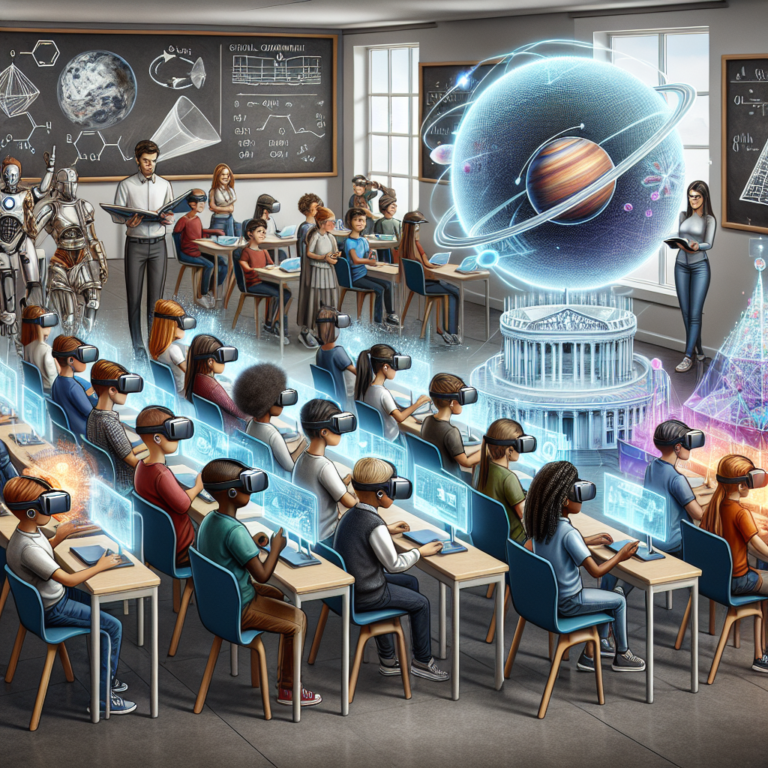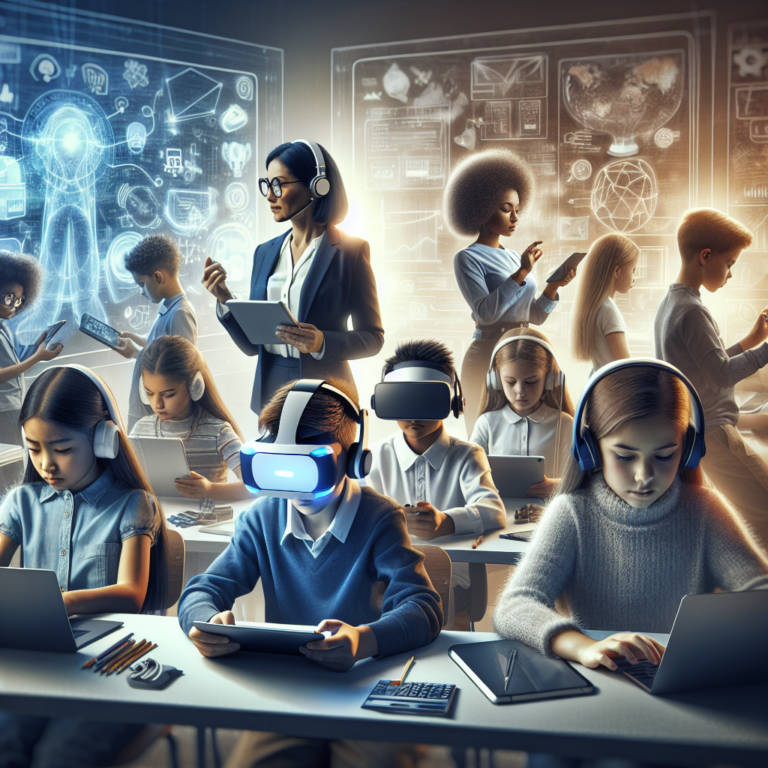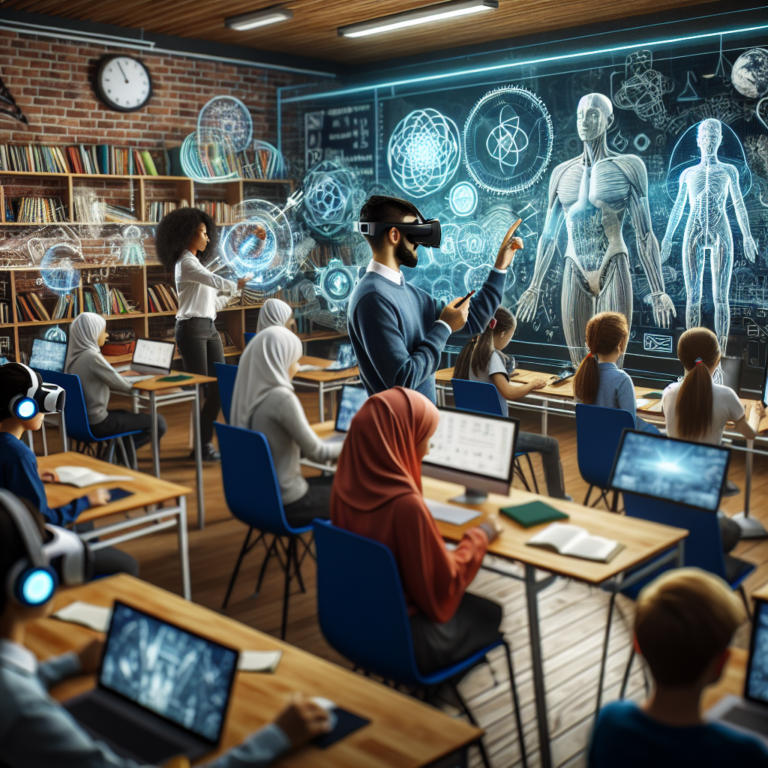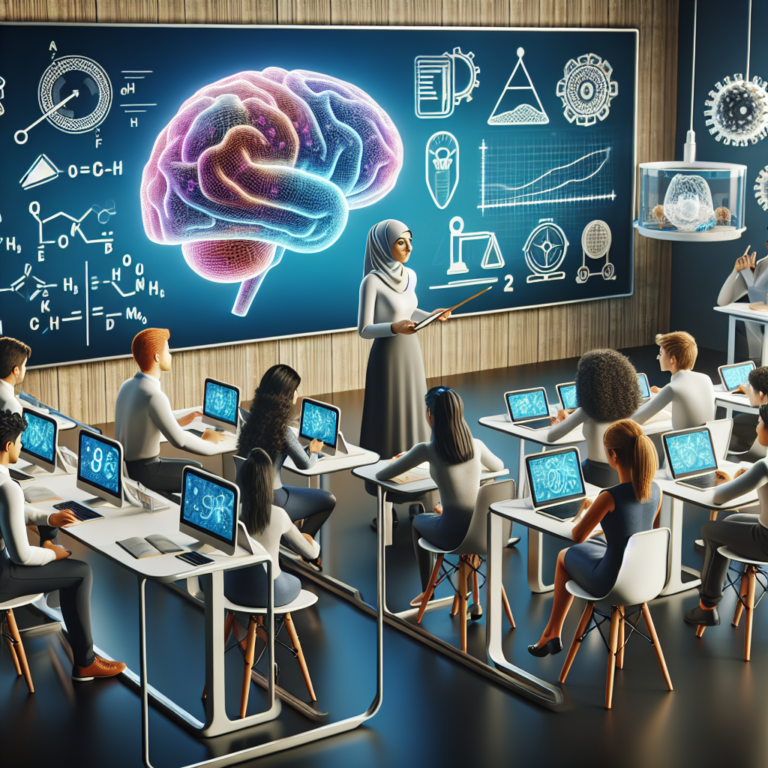Enhancing Learning with AI Technology
The advent of AI technology in education is transforming the learning landscape. It’s reshaping how knowledge is imparted and absorbed.
AI tools are becoming integral to classrooms, enhancing the learning experience. They’re personalizing education, making it more engaging and effective.
But the integration of AI in education is not without challenges. Issues of data privacy, bias, and the digital divide are significant concerns.
This article delves into the role of AI technology in education. It explores the benefits, the challenges, and the future potential of AI in this sector.
Whether you’re an educator, a policy maker, or a tech enthusiast, this comprehensive guide will provide valuable insights. It’s time to understand how AI is enhancing learning and shaping the future of education.
The Advent of AI in Education
AI technology is no longer a distant concept. It’s here, and it’s revolutionizing education. The integration of AI in education is a global phenomenon, impacting both developed and developing nations.
AI education technologies are transforming traditional teaching methods. They’re making education more interactive, personalized, and efficient. From virtual tutors to smart content, AI is reshaping the learning experience.
But it’s not just about enhancing student learning. AI is also assisting educators and administrators. It’s streamlining administrative tasks, providing real-time feedback, and analyzing educational data.
The impact of AI on education is profound. It’s not just changing how we teach and learn, but also what we learn. With AI, we’re preparing students for a future where technology is integral.
However, the advent of AI in education also brings challenges. Issues of data privacy, bias, and accessibility need to be addressed. As we embrace AI, we must also navigate these complexities to ensure a fair and inclusive education system.
Defining AI and Its Role in Educational Settings
Artificial Intelligence, or AI, is a branch of computer science. It involves creating machines and software that can learn, reason, perceive, and process natural language. In essence, AI is about building smart machines capable of performing tasks that would normally require human intelligence.
In the context of education, AI is a game-changer. It’s not just a tool for teaching and learning, but a partner in the process. AI can adapt to individual learning styles, provide personalized feedback, and even predict future learning outcomes.
AI’s role in education extends beyond the classroom. It’s also a powerful tool for administrative tasks. From scheduling to student data management, AI is helping to streamline operations in educational institutions.
However, the integration of AI in education is not without challenges. Issues of data privacy, bias, and the digital divide must be addressed to ensure that AI is used ethically and equitably in educational settings.
AI Tools Revolutionizing the Classroom Experience
AI tools are transforming the way we teach and learn. They are making education more interactive, engaging, and personalized. These tools are not just enhancing the learning experience, but also reshaping the role of educators.
AI education technologies include intelligent tutoring systems, virtual reality, and language processing tools. These tools are designed to cater to different learning styles and paces. They can provide real-time feedback, adapt to student needs, and even predict learning outcomes.
Here are some examples of AI tools currently used in classrooms:
- Intelligent Tutoring Systems: These systems provide personalized instruction and feedback, helping students to learn at their own pace.
- Virtual Reality: VR can create immersive learning experiences, making complex concepts easier to understand.
- Language Processing Tools: These tools can assist with language learning and literacy improvement, making education more accessible to non-native speakers.
Personalized Learning through AI
AI is revolutionizing personalized learning. It can adapt to individual learning styles, making education more effective and engaging. AI can analyze a student’s performance, identify areas of weakness, and tailor instruction accordingly.
This level of personalization was previously unattainable. With AI, every student can have a unique learning path, tailored to their needs and abilities. This can lead to improved learning outcomes and increased student motivation.
AI’s Assistance in Administrative Efficiency
AI is not just transforming teaching and learning. It’s also making administrative tasks more efficient. From scheduling to student data management, AI is streamlining operations in educational institutions.
AI can automate routine tasks, freeing up time for educators to focus on teaching. It can also provide insights into student performance and behavior, helping administrators make informed decisions.
Real-Time Feedback and Adaptive Learning Systems
One of the key benefits of AI in education is its ability to provide real-time feedback. This can help students understand their progress and identify areas for improvement. It can also help educators tailor their instruction to meet student needs.
Adaptive learning systems use AI to adjust the learning content in real-time. These systems can identify a student’s strengths and weaknesses, and adapt the learning material accordingly. This can lead to more effective learning and improved student outcomes.
The Ethical Implications of AI in Education
The use of AI in education brings with it a host of ethical considerations. These include issues of bias, fairness, and data privacy. As AI becomes more prevalent in education, these ethical implications must be addressed.
AI systems are only as good as the data they are trained on. If the training data is biased, the AI system will also be biased. This can lead to unfair outcomes in educational settings.
Moreover, AI systems often operate as black boxes. Their decision-making processes are not transparent, which can lead to a lack of accountability. This lack of transparency can also make it difficult to identify and correct bias in AI systems.
Addressing Bias and Ensuring Fairness
Bias in AI systems can lead to unfair outcomes for students. For example, an AI system might favor students from certain backgrounds or with certain learning styles. This can disadvantage other students and perpetuate existing inequalities in education.
To ensure fairness, AI systems must be trained on diverse and representative data. They must also be regularly audited for bias. This requires a commitment to transparency and accountability from both AI developers and educational institutions.
Moreover, educators must be trained to understand and mitigate the potential biases in AI systems. They must be equipped to critically evaluate AI tools and their impact on students.
Data Privacy and Security Concerns
The use of AI in education also raises concerns about data privacy and security. AI systems often require large amounts of data to function effectively. This data can include sensitive information about students’ learning habits, performance, and personal characteristics.
Educational institutions must ensure that this data is stored and processed securely. They must also be transparent about how the data is used and who has access to it.
Moreover, students and their parents must be informed about the data collection practices of AI systems. They must have the right to opt out of data collection, and to have their data deleted upon request.
Overcoming Challenges in AI Adoption
The adoption of AI in education is not without its challenges. These include technical hurdles, lack of understanding, and resistance to change. However, these challenges can be overcome with the right strategies and resources.
Technical challenges include the integration of AI systems with existing educational technologies. This requires a high level of technical expertise and can be costly. However, with the right support and resources, these challenges can be overcome.
Another challenge is the lack of understanding and awareness about AI among educators and administrators. This can lead to resistance to change and a reluctance to adopt AI technologies. However, with proper training and education, this challenge can be overcome.
Finally, there is the challenge of ensuring that AI technologies are used ethically and responsibly. This requires a commitment to transparency, accountability, and continuous learning.
Integration and Implementation Hurdles
The integration of AI technologies into existing educational systems can be a complex process. It requires a high level of technical expertise and can be costly. However, with the right support and resources, these challenges can be overcome.
One strategy is to start small and gradually scale up. This allows for testing and refinement of the AI system before it is fully integrated. It also allows for the identification and mitigation of any potential issues early on.
Another strategy is to involve all stakeholders in the integration process. This includes educators, administrators, students, and parents. Their input can help to ensure that the AI system meets the needs of all users and is used effectively and responsibly.
Preparing Educators for an AI-Enhanced Future
Educators play a crucial role in the successful adoption of AI in education. They are the ones who will be using the AI tools on a daily basis and interacting with the students. Therefore, it is essential that they are prepared for an AI-enhanced future.
This preparation includes training in the use of AI tools and understanding their potential and limitations. It also includes training in data literacy and understanding the ethical implications of AI.
Moreover, educators must be equipped to critically evaluate AI tools and their impact on students. They must be able to identify and mitigate any potential biases in the AI system. This requires a commitment to continuous learning and adaptability.
The Future Landscape of AI in Education
The future of AI in education is promising. With advancements in technology, we can expect to see more sophisticated AI tools that can enhance learning and teaching. These tools will be more personalized, adaptive, and efficient.
AI will also play a crucial role in shaping education policy. Policymakers will need to consider the ethical implications of AI, such as data privacy and security, and ensure that AI technologies are used responsibly and equitably.
Moreover, the future of AI in education will be shaped by the collaboration between educational institutions and AI technology companies. This collaboration will drive innovation and ensure that AI technologies meet the needs of educators and students.
Innovations on the Horizon
There are several exciting innovations on the horizon in the field of AI in education. These include AI-powered adaptive learning systems, AI tutors, and AI tools for administrative tasks.
Adaptive learning systems use AI to personalize learning for each student. They adapt to the student’s learning style and pace, providing a more effective and efficient learning experience.
AI tutors can provide personalized tutoring to students, helping them to understand complex concepts and improve their academic performance. They can also provide real-time feedback, helping students to learn from their mistakes and improve their understanding.
The Role of AI in Shaping Education Policy
AI will play a crucial role in shaping education policy. Policymakers will need to consider the ethical implications of AI, such as data privacy and security. They will need to ensure that AI technologies are used responsibly and equitably.
Policymakers will also need to consider the impact of AI on the education workforce. They will need to ensure that educators are prepared for an AI-enhanced future and that they have the skills and knowledge to use AI tools effectively.
Moreover, policymakers will need to foster collaboration between educational institutions and AI technology companies. This collaboration will drive innovation and ensure that AI technologies meet the needs of educators and students.
Conclusion: Embracing AI for a Smarter Education System
The integration of AI technology in education is not just a trend, but a necessity. It holds the potential to revolutionize teaching and learning, making it more personalized, efficient, and effective.
However, the adoption of AI in education comes with its own set of challenges. These include ethical considerations, data privacy and security concerns, and the need for teacher training and professional development. It is crucial to address these challenges to ensure the responsible and equitable use of AI in education.





